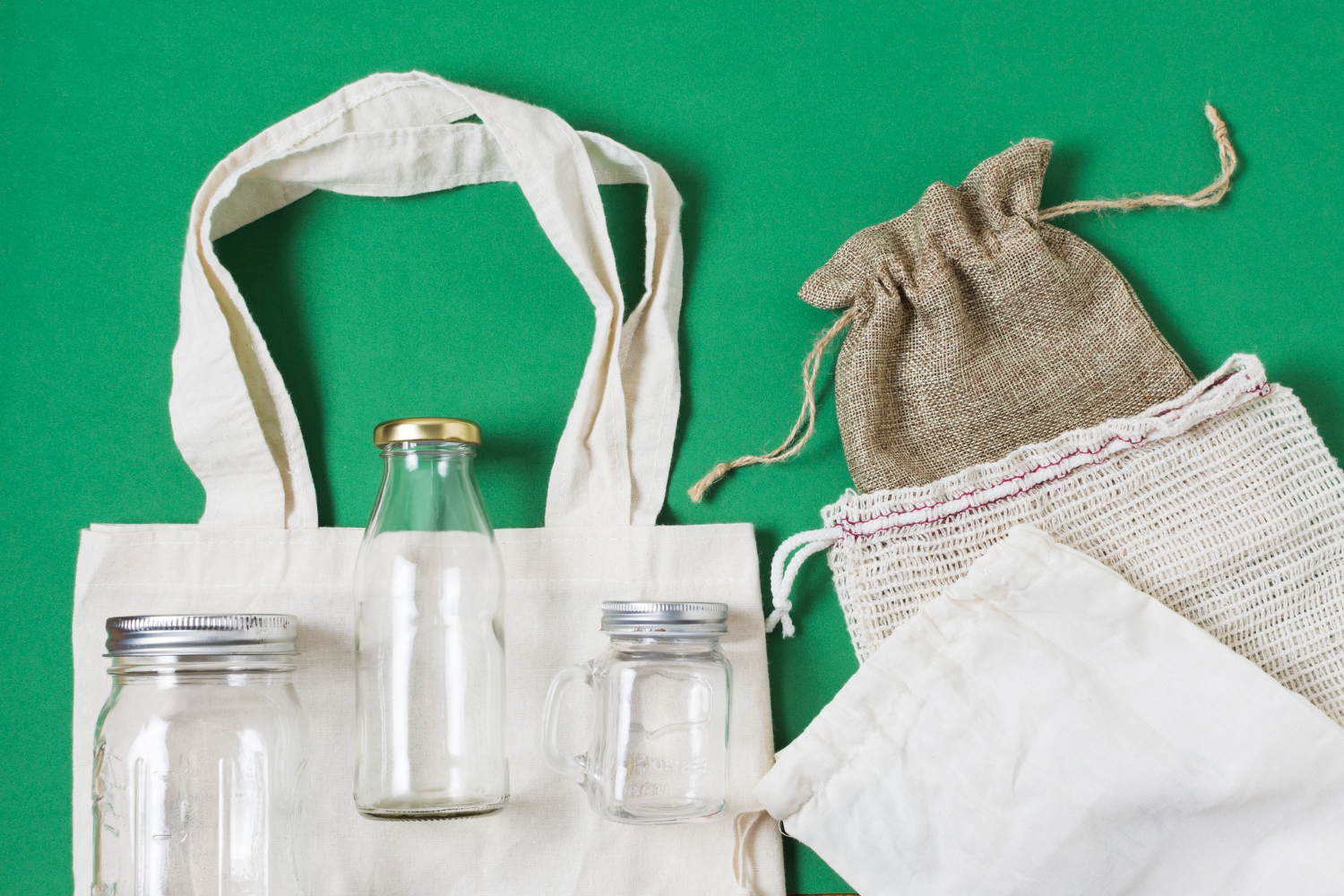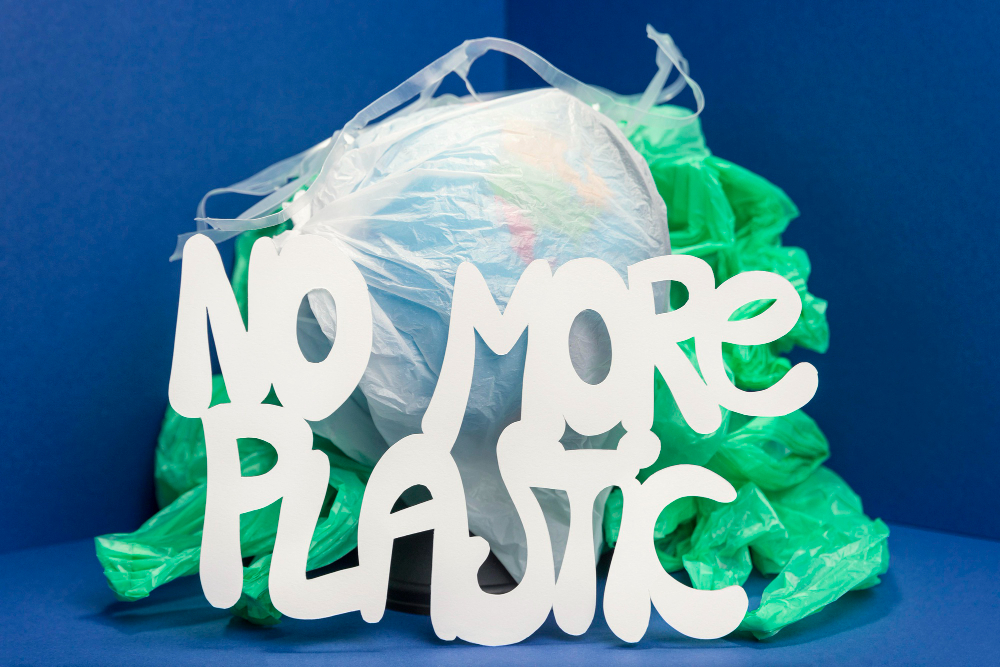Introduction: The Urgency of Switching to Plastic-Free Alternatives
Understanding the Plastic Crisis
Plastic pollution is one of the most pressing environmental issues of our time. With millions of tons of plastic waste entering our oceans and landfills every year, the need for plastic-free alternatives has never been more critical. This blog post will explore various plastic-free alternatives and how they can help us reduce our plastic footprint.
Why Plastic-Free Alternatives Matter
Switching to plastic-free alternatives is not just about reducing waste—it’s about protecting our planet for future generations. Plastic-free options often come with additional benefits, such as being healthier, more sustainable, and supporting ethical practices. Let’s dive into the world of plastic-free living and discover how small changes can make a big difference.
2. Plastic-Free Alternatives in the Kitchen
Reusable Containers and Beeswax Wraps
One of the easiest ways to reduce plastic use in the kitchen is by switching to reusable containers and beeswax wraps. Glass or stainless steel containers are excellent plastic-free alternatives for storing food, while beeswax wraps can replace plastic wrap for keeping food fresh. These options are not only better for the environment but also safer for your health, as they do not leach harmful chemicals into your food.
Compostable Bags and Biodegradable Trash Bags
Compostable bags and biodegradable trash bags are excellent plastic-free alternatives for reducing waste in the kitchen. These products break down naturally, leaving no toxic residues behind. Using compostable bags for your food scraps and biodegradable trash bags for your general waste can significantly decrease the amount of plastic you send to landfills.
3. Plastic-Free Cleaning Solutions
Natural Cleaning Products
Most conventional cleaning products come in plastic packaging and contain harmful chemicals. Switching to natural cleaning products in glass or metal containers is a simple plastic-free alternative that is safer for your home and the environment. You can even make your own cleaning solutions using ingredients like vinegar, baking soda, and essential oils.
Reusable Cleaning Cloths and Brushes
Instead of using disposable plastic-based cleaning wipes and brushes, opt for reusable cleaning cloths and brushes made from sustainable materials like bamboo, wood, or natural fibers. These plastic-free alternatives are durable, biodegradable, and can be washed and reused multiple times, reducing waste and the need for plastic products.
4. Plastic-Free Alternatives in Personal Care
Shampoo Bars and Solid Conditioners
Shampoo bars and solid conditioners are fantastic plastic-free alternatives to traditional bottled shampoos and conditioners. These products are often packaged in minimal or biodegradable materials, reducing plastic waste. They are also concentrated, meaning they last longer and require less packaging overall.
Bamboo Toothbrushes and Natural Toothpaste
Bamboo toothbrushes are a popular plastic-free alternative to conventional plastic toothbrushes. Bamboo is a renewable resource that decomposes naturally, making it an eco-friendly choice. Pair your bamboo toothbrush with natural toothpaste that comes in a glass jar or metal tube to further reduce plastic waste in your bathroom.
5. Plastic-Free Alternatives in Fashion
Sustainable Clothing and Accessories
Fast fashion is a significant contributor to plastic pollution, with many garments made from synthetic fibers that shed microplastics. Opting for sustainable clothing made from natural fibers like organic cotton, hemp, or linen is a great plastic-free alternative. Additionally, look for accessories made from materials like cork, wood, or recycled metals instead of plastic.
Eco-Friendly Footwear
Many shoes are made with plastic components, but there are now numerous plastic-free alternatives available. Look for footwear made from natural materials like organic cotton, cork, or natural rubber. These materials are biodegradable and offer a more sustainable option for your wardrobe.
6. Plastic-Free Packaging Solutions
Bulk Buying and Refill Stations
One of the most effective ways to reduce plastic waste is by purchasing products in bulk and using refill stations. Many stores now offer bulk options for items like grains, nuts, and spices, allowing you to bring your own containers and avoid plastic packaging. Refill stations for household products like laundry detergent and soap are also becoming more common, providing convenient plastic-free alternatives.
Compostable and Reusable Packaging
When buying products that come in packaging, choose those that use compostable or reusable materials. Compostable packaging is made from plant-based materials that break down naturally, while reusable packaging can be repurposed for other uses. Both options are excellent plastic-free alternatives to single-use plastic packaging.
7. Plastic-Free Alternatives for Babies and Children
Cloth Diapers and Natural Baby Wipes
Cloth diapers are a time-tested plastic-free alternative to disposable diapers. They are reusable, made from natural materials, and can significantly reduce the amount of waste generated by your household. Pair cloth diapers with natural baby wipes made from cotton or bamboo, which can be washed and reused, for a complete plastic-free diapering solution.
Wooden Toys and Plastic-Free Feeding Supplies
Plastic toys often contain harmful chemicals and contribute to plastic pollution. Wooden toys are a durable and safe plastic-free alternative that can be passed down through generations. For feeding supplies, opt for stainless steel or bamboo plates, bowls, and utensils instead of plastic ones. These plastic-free alternatives are safer for your child and better for the environment.
8. Plastic-Free Alternatives in Travel
Reusable Water Bottles and Coffee Cups
One of the most common sources of plastic waste during travel is single-use water bottles and coffee cups. By carrying a reusable water bottle and coffee cup, you can avoid using disposable plastic items. Stainless steel and glass bottles are excellent plastic-free alternatives that keep your beverages cold or hot while reducing plastic waste.
Eco-Friendly Travel Accessories
From luggage to toiletry bags, many travel accessories are made from plastic. Look for plastic-free alternatives made from materials like organic cotton, hemp, or recycled fabric. These eco-friendly travel accessories are durable, stylish, and help reduce your plastic footprint while on the go.
9. Plastic-Free Alternatives in Gardening
Biodegradable Plant Pots and Seed Trays
Plastic plant pots and seed trays are common in gardening but can easily be replaced with biodegradable options. Biodegradable pots are made from materials like coconut coir, peat, or paper and can be planted directly into the ground, reducing plastic waste in your garden. Seed trays made from bamboo or other natural materials are also excellent plastic-free alternatives.
Natural Garden Tools and Mulch
Many gardening tools are made with plastic components, but there are plastic-free alternatives available. Look for tools with wooden handles and metal parts instead of plastic. For mulch, use natural options like straw, wood chips, or compost instead of plastic-based mulches. These plastic-free alternatives support a healthier garden and environment.
10. Plastic-Free Alternatives for Home Decor
Sustainable Furniture and Home Accessories
When furnishing your home, consider sustainable furniture made from natural materials like wood, bamboo, or reclaimed materials. These plastic-free alternatives are not only eco-friendly but also add a unique and natural aesthetic to your home. Home accessories like lamps, rugs, and curtains made from natural fibers are also excellent plastic-free options.
Eco-Friendly Paint and Wallpaper
Many conventional paints and wallpapers contain plastic components and harmful chemicals. Look for eco-friendly paints made from natural ingredients and wallpapers made from paper or fabric. These plastic-free alternatives are better for your health and the environment, creating a safer and more sustainable home.
11. Plastic-Free Alternatives in Office Supplies
Recycled Paper and Notebooks
Traditional office supplies often contain plastic, but there are plastic-free alternatives available. Choose recycled paper and notebooks with paper or cardboard covers instead of plastic. These options help reduce plastic waste and support the use of recycled materials.
Bamboo Pens and Pencils
Pens and pencils are often made from plastic, but there are plastic-free alternatives available. Bamboo pens and pencils are made from natural materials and are biodegradable, making them a sustainable choice for your office supplies.
12. Plastic-Free Alternatives in Food Storage
Glass Jars and Stainless Steel Containers
Plastic containers are commonly used for food storage, but they can leach harmful chemicals into your food. Glass jars and stainless steel containers are excellent plastic-free alternatives that are safe, durable, and can be reused indefinitely. These options also help reduce plastic waste in your kitchen.
Silicone Food Bags and Wraps
Silicone food bags and wraps are versatile plastic-free alternatives to traditional plastic bags and wraps. Silicone is a durable and reusable material that can be used for storing food, freezing leftovers, and even cooking. These options are a great way to reduce plastic waste and keep your food fresh.
13. Plastic-Free Alternatives in Beauty Products
Refillable Makeup Containers
Many beauty products come in plastic packaging, but there are plastic-free alternatives available. Refillable makeup containers made from metal or glass are a sustainable choice that reduces plastic waste. Look for brands that offer refillable options for items like foundation, lipstick, and powder.
Solid Perfumes and Natural Deodorants
Solid perfumes and natural deodorants are excellent plastic-free alternatives to traditional products that come in plastic packaging. These options are often packaged in minimal or biodegradable materials and are made from natural ingredients, making them a healthier and more sustainable choice.
14. Plastic-Free Alternatives for Pets
Natural Pet Toys and Bedding
Plastic pet toys and bedding can contain harmful chemicals and contribute to plastic pollution. Choose natural pet toys made from materials like rubber, hemp, or cotton, and opt for bedding made from natural fibers. These plastic-free alternatives are safer for your pets and the environment.
Stainless Steel Pet Bowls and Biodegradable Bags
Stainless steel pet bowls are a durable and plastic-free alternative to plastic bowls. They are easy to clean, long-lasting, and do not leach chemicals into your pet’s food. For waste disposal, use biodegradable bags instead of plastic ones to reduce plastic waste.
15. Plastic-Free Alternatives in Electronics
Eco-Friendly Phone Cases and Accessories
Many phone cases and accessories are made from plastic, but there are plastic-free alternatives available. Look for phone cases made from materials like wood, cork, or biodegradable materials. These eco-friendly options are just as protective as plastic cases but are better for the environment.
Rechargeable Batteries and Solar Chargers
Disposable batteries and plastic chargers contribute to plastic waste and electronic pollution. Opt for rechargeable batteries and solar chargers as plastic-free alternatives. These options are more sustainable and can save you money in the long run.
16. Plastic-Free Alternatives in School Supplies
Reusable Lunch Containers and Utensils
Plastic lunch containers and utensils are common in schools, but there are plastic-free alternatives available. Reusable lunch containers made from stainless steel or glass are a durable and eco-friendly option. Pair them with bamboo or metal utensils to reduce plastic waste in your child’s lunchbox.
Cloth Backpacks and Pencil Cases
Many backpacks and pencil cases are made from plastic or synthetic materials. Choose cloth backpacks and pencil cases made from natural fibers like cotton or hemp. These plastic-free alternatives are durable, stylish, and reduce your child’s plastic footprint.
17. Plastic-Free Alternatives in Outdoor Activities
Reusable Picnic Ware and Cutlery
Plastic picnic ware and cutlery are often used for outdoor activities, but there are plastic-free alternatives available. Reusable picnic ware made from bamboo, stainless steel, or silicone is a sustainable option that reduces plastic waste. These items are durable and can be used for many outdoor adventures.
Natural Camping Gear and Equipment
Camping gear often contains plastic, but there are plastic-free alternatives available. Look for tents, sleeping bags, and other camping equipment made from natural or recycled materials. These options are not only eco-friendly but also durable and designed to withstand the elements.
18. Plastic-Free Alternatives in Celebrations
Eco-Friendly Party Supplies
Celebrations often involve a lot of single-use plastic, but there are plastic-free alternatives available. Eco-friendly party supplies made from compostable or reusable materials are a great way to reduce waste. Look for plates, cups, and decorations made from materials like bamboo, paper, or cloth.
Sustainable Gift Wrapping and Decorations
Plastic gift wrapping and decorations contribute to plastic waste, but there are plastic-free alternatives available. Choose sustainable gift wrapping options like cloth, recycled paper, or reusable gift bags. For decorations, opt for natural materials like flowers, leaves, or wood to create a beautiful and eco-friendly celebration.
19. Plastic-Free Alternatives for Health and Wellness
Glass Water Bottles and Stainless Steel Straws
Plastic water bottles and straws are major contributors to plastic pollution, but there are plastic-free alternatives available. Glass water bottles and stainless steel straws are durable, reusable, and safe for your health. These options are a simple way to reduce plastic waste in your daily routine.
Natural Fiber Yoga Mats and Workout Gear
Many yoga mats and workout gear are made from synthetic materials that contain plastic. Choose natural fiber yoga mats made from materials like cork or jute, and look for workout gear made from organic cotton or other sustainable materials. These plastic-free alternatives are better for your health and the environment.
20. Conclusion: The Future of Plastic-Free Living
The Impact of Choosing Plastic-Free Alternatives
Switching to plastic-free alternatives has a significant impact on the environment and our health. By choosing sustainable materials and reducing our reliance on plastic, we can help protect the planet for future generations. Every small change adds up, and together, we can create a more sustainable and plastic-free future.
The Importance of Continued Awareness and Action
While the journey towards plastic-free living may seem daunting, it is essential to continue raising awareness and taking action. By sharing knowledge and making conscious choices, we can inspire others to join us in the movement towards a plastic-free world. Let’s keep pushing for change and embracing plastic-free alternatives in every aspect of our lives.
5 Key Points Recap:
- Reusable Kitchen Solutions: Opt for reusable containers, beeswax wraps, and compostable bags in the kitchen.
- Sustainable Personal Care: Switch to bamboo toothbrushes, shampoo bars, and natural toothpaste.
- Eco-Friendly Fashion: Choose sustainable clothing, accessories, and footwear made from natural materials.
- Plastic-Free Travel: Carry reusable water bottles, coffee cups, and eco-friendly travel accessories.
- Plastic-Free Celebrations: Use eco-friendly party supplies and sustainable gift wrapping for special occasions.
FAQs:
- What are plastic-free alternatives?
- Plastic-free alternatives are products made from natural, biodegradable, or reusable materials that replace single-use plastic items.
- Why are plastic-free alternatives important?
- They help reduce plastic waste, protect the environment, and often come with health benefits as they do not leach harmful chemicals.
- What are some common plastic-free alternatives for the kitchen?
- Reusable containers, beeswax wraps, glass jars, stainless steel containers, and compostable bags.
- Can I find plastic-free personal care products easily?
- Yes, many brands now offer plastic-free personal care products like shampoo bars, bamboo toothbrushes, and natural toothpaste.
- How can I reduce plastic waste when shopping?
- Bring your own reusable bags, buy in bulk, choose products with minimal or compostable packaging, and support refill stations.
- Are there plastic-free options for children’s products?
- Yes, options include cloth diapers, wooden toys, stainless steel feeding supplies, and natural fiber clothing.
- What are some plastic-free alternatives in fashion?
- Sustainable clothing made from natural fibers, eco-friendly footwear, and accessories made from materials like cork or wood.
- How do I start living a plastic-free lifestyle?
- Begin by replacing single-use plastic items with reusable alternatives, and gradually incorporate more plastic-free products into your daily routine.
- Are there any plastic-free alternatives for office supplies?
- Yes, recycled paper, bamboo pens, and cloth backpacks are great plastic-free office supplies.
- What is the future of plastic-free living?
- The future of plastic-free living involves continued awareness, innovation in sustainable materials, and a global shift towards reducing plastic use.



